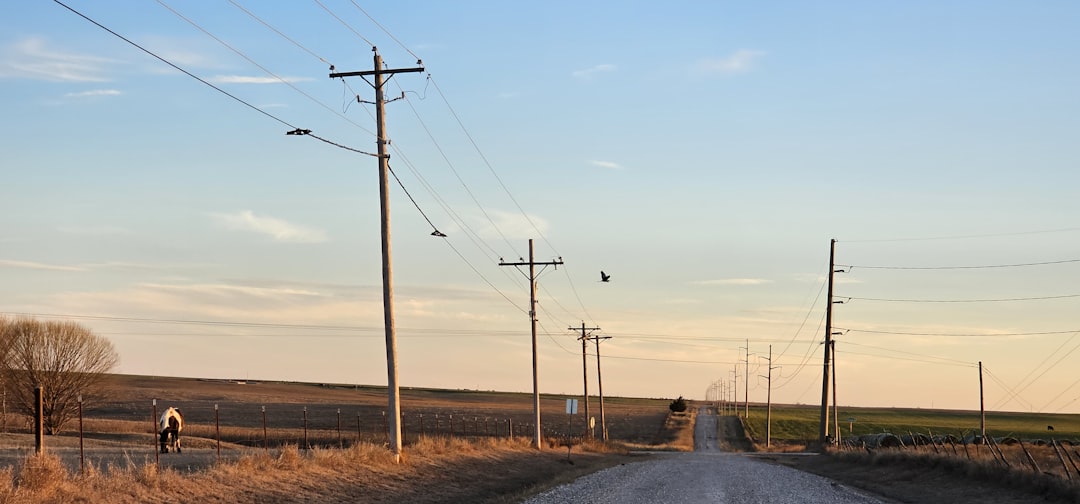In Oklahoma, federal (TCPA) and state robocall laws protect residents from unwanted automated calls. Consumers can use Do Not Call lists and blocking apps to control marketing calls, while businesses must comply with TCPA rules or face penalties. Robust enforcement of these laws aims to reduce robocalls, enhancing privacy for citizens and shaping a more secure communication environment in Oklahoma.
In Oklahoma, understanding and leveraging robocall laws is essential for residents seeking to reclaim their privacy from relentless automated calls. This article explores both legal protections against robocalls and effective robocall blocking apps tailored for OK citizens. We delve into how to file complaints, emphasizing the state’s role in enhancing privacy. By equipping ourselves with knowledge and tools, we can navigate the landscape of robocall laws in Oklahoma and protect our peace.
Understanding Robocall Laws in Oklahoma

In Oklahoma, like many other states, robocalls are regulated by laws designed to protect consumers from unwanted and nuisance calls. The Telephone Consumer Protection Act (TCPA) is a federal law that sets guidelines for automated phone calls, including those made using artificial or prerecorded voices. In Oklahoma, the state’s Attorney General’s Office enforces these laws, which restrict how businesses can contact residents via phone.
Understanding these robocall laws is crucial for both consumers and businesses. Consumers have rights to prevent unwanted calls, while businesses must adhere to strict rules to avoid penalties. By knowing their rights and responsibilities, folks in Oklahoma can take measures to stop robocalls effectively. This may involve registering on Do Not Call lists, using blocking apps, or reporting suspicious calls to the appropriate authorities.
Legal Protections Against Automated Calls

In Oklahoma, as in many other states, there are laws in place to protect residents from unwanted automated calls, or robocalls. The Telephone Consumer Protection Act (TCPA) is a federal law that restricts how businesses and organizations can use automated dialing systems and prerecorded messages. It’s important for Oklahomans to know their rights under this legislation, which includes opting out of receiving such calls.
The TCPA gives consumers the right to ask that their phone number be removed from marketing call lists, and it imposes strict penalties on violators. Oklahoma also has its own regulations regarding robocalls, further enhancing protection for residents. These state and federal laws work together to ensure that automated calls are used responsibly, providing a layer of legal safeguard against annoying and intrusive robocalls.
Top Robocall Blocking Apps for OK Residents

In Oklahoma, as in many states, robocalls are a persistent nuisance. However, residents have several powerful tools at their disposal to fight back. The top robocall blocking apps for OK citizens offer advanced call screening and blocking features that can significantly reduce the volume of unwanted calls, especially those related to telemarketing and political campaigns.
These applications leverage sophisticated algorithms and databases to identify and block robocalls. Many popular options include CallApp, Hiya, and TrueCall, which are renowned for their high success rates in blocking spam calls. By downloading and activating these apps on your smartphone, Oklahoma residents can navigate the call landscape with greater peace of mind, ensuring they only receive calls from contacts they know and trust, while simultaneously protecting themselves from the nuisance and potential risks associated with robocalls.
How to File a Complaint Against Robocalls

In Oklahoma, robocalls are regulated by the Oklahoma Department of Commerce and the Federal Communications Commission (FCC) through the Telephone Consumer Protection Act (TCPA). If you’ve received a nuisance robocall, filing a complaint is an essential step to combat these unwanted calls. Start by identifying the caller if possible; this information can often be found in your call history or by checking with your service provider. Next, visit the Oklahoma Department of Commerce website or the FCC’s DoNotCallRegistry website to file your complaint. Provide detailed information about the caller and the nature of the robocall, including dates and times you received the calls. This data will help regulators track and investigate suspicious activity.
Remember that each state has its own regulations, and while filing a complaint won’t necessarily stop all robocalls, it contributes to building a record of nuisance callers, which can lead to stricter penalties and enhanced protections for consumers. Stay proactive in protecting your phone lines from these unwanted intrusions by regularly reviewing your call history and reporting suspicious activity.
Enhancing Privacy: Oklahoma's Role in Stopping Robocalls

Oklahoma has been proactive in addressing the growing issue of robocalls through robust legislation. The state’s robocall laws are designed to protect residents from unwanted and intrusive automated phone calls, a significant step towards enhancing privacy for its citizens. These laws provide a framework for consumers to assert control over their phone lines and silence relentless robocallers.
By implementing stricter regulations, Oklahoma is playing a crucial role in shaping a more secure communication environment. The state’s efforts not only empower individuals but also encourage telecommunications companies to adopt better practices. This collective action helps curb the deluge of unwanted calls, offering residents some much-needed peace from intrusive marketing tactics and fraudulent schemes often associated with robocalls.






